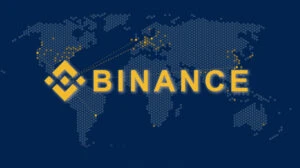Mar 12, 2024 12:25
Thecryptocurrency market in Poland is set to face increased oversight as thegovernment moves to implement the European Union's Markets in Crypto-Assets(MiCA) regulation into domestic legislation. The draft law, which aims toregulate and supervise the issuance, trading, and provision of cryptocurrency services, will grant the Komisja Nadzoru Finansowego (KNF) newpowers, including the ability to block crypto accounts.
KNF to Gain Power to BlockCryptocurrency Accounts in Poland
Under theproposed legislation, the KNF will have the authority to independently blockthe accounts of cryptocurrency holders for 96 hours (4 days) if there is suspicion that a transaction may be linked to the commission of a crime. With the consent of the prosecutor's office, this initial blocking period can be extended for up to six months.
"Inthe event of a suspicion that a transaction may be linked to the commission ofa crime, the KNF will be able to independently block the accounts ofcryptocurrency holders, Izabela Deryo, a tax expert associated with theWarsaw office of law firm Wolf Theiss, explained the implications of this newpower to Business Insider.
Theannouncement of these new measures has caused concern among cryptocurrencyinvestors in Poland, as the rationale for account blockades remains unclear.Experts point out that the lack of clarity surrounding the grounds for blockingaccounts could lead to uncertainty and potential misuse of this power.
"This is another regulation that is causing considerable controversy, following an attempt a few years ago to push through very unfavorable rules for taxing cryptocurrencies," Arkadiusz Jówiak, a cryptocurrency trader, analyst, and Editor-in-Chief of the financial portal Comparic, tells Finance Magnates. "Given the aversion that the KNF has shown towards cryptocurrencies so far, the ability to preemptively block accounts based on mere suspicions may, unfortunately, be excessively used and abused."
Although the Polish government and the Financial Supervision Authority (KNF) claim they are implementing new regulations in accordance with the European MiCA requirements, the European legislation does not mention the preventative blocking of cryptocurrencies on user accounts. This "addition" was introduced locally, and Poland is known for such solutions. A similar situation occurred in 2018 when ESMA restricted FX/CFD trading. At that time, the KNF also introduced its modification to European rules.
Recently, the KNF awarded a Virtual Asset Service Provider license to Ouinex, a forthcoming cryptocurrency exchange.
New Authority in the Handsof the KNF by This Year
News thatPoland is moving to regulate cryptocurrencies, which will be under the directsupervision of the KNF, started to emerge early this year. According to thesereports, in the second quarter of 2024, the government plans to introduceregulations that will enable the regulator not only to block accounts but alsoto impose financial penalties on companies operating in the cryptocurrencymarket. This initiative follows the adoption of MiCA regulations introducedin the European Union.
The official statement highlighted that theintroduction of this new legislation is driven by the necessity to establish alegal framework for the proper operation of cryptocurrency markets. It aims toensure effective supervision and protection of investors by equipping the KNFwith the necessary tools to achieve these objectives.
The initialefforts to regulate the cryptocurrency market in Poland began in 2020. In theyears that followed, the digital asset market in the country has operatedwithout a detailed legal structure, with only its taxation aspect being clearlydefined. During this period, the KNF consistently cautioned investors about thehigh risks linked to investments in digital assets.
With thenewest developments, Poland is set to become part of the expanding list ofEuropean nations where the local regulatory bodies govern the cryptocurrencymarket. This group includes the UK's Financial Conduct Authority, which issuednew guidelines in November during a period of turmoil in crypto marketing.
Poland Crypto Market vs Europe
Accordingto data from Statista, 6 million Polish citizens, representing 15% ofthe population, used cryptocurrencies last year. In 2024, the number is forecasted to increase by an additional million.
In comparison, the same source notesthat Europe had 141 million cryptocurrency users in 2023, meaning 4% of themwere from Poland. France saw 12.5 million people trading in cryptocurrencies,while Germany had 15 million users.
Cryptocurrenciesare hugely popular in Poland, but due to an unfavorable regulatory climate, nomajor local cryptocurrency exchanges currently operate in the country. Just adecade ago, there were many of them, including the Polish BitBay, which wasonce among Europe's largest crypto exchanges. Eventually, it rebranded to Zondaand moved its operations outside of Poland. The Kanga Exchange, still active in the Polish market, is relatively small, and although it promotes itself as Polish, its headquarters are also located abroad.
However,cryptocurrency ATMs and physical crypto exchange offices are booming inpopularity. The country ranks fifth worldwide in the number of cryptocurrencyATMs, with just around 300 devices.
Clearregulations introduced by the MiCA and implemented in their local version bythe KNF could clarify the regulatory situation and increase the chances of anew exchange emerging in the local market. This is particularly significantconsidering the millions of potential clients at stake.
This article was written by Damian Chmiel at www.financemagnates.com.



















